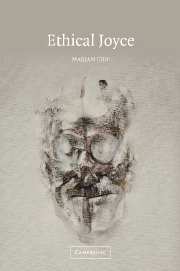Book contents
3 - Ethical opposition and fluid sensibility
Published online by Cambridge University Press: 22 September 2009
Summary
A river is not a woman.
Although the names it finds,
The history it makes
And suffers –
The Viking blades beside it,
The muskets of Redcoats,
the flames of the Four Courts
Blazing into it –
Are a sign….
And in my late forties
Past believing
Love will heal
What language fails to know
And needs to say –
What the body means
I take this sign
And I make this mark:
A woman in the doorway of her house.
A river in the city of her birth.
The truth of a suffered life.
The mouth of it.
(Eavan Boland, “Anna Liffey”)In Finnegans Wake, Joyce amplifies the meditation on May Dedalus in Ulysses, presenting Anna Livia Plurabelle as an ethical agent, a figure (sometimes quite literally, as when she becomes a geometrical figure) through whom ethical relations might be understood and engaged. In suggesting this capacity, Joyce differs from a traditional and even patriarchal equation of maternity with moral rectitude, an equation exemplified in his time by the extremely conservative roles assigned to women as moral exemplars within the domestic sphere. ALP does not always act in accord with the standard moral codes of her culture or her time. Rather, she presents in her own interactions and in the habitat she provides for her children, an ethical understanding formed by her assumption that oppositional categories are interdependent though never interchangeable.
- Type
- Chapter
- Information
- Ethical Joyce , pp. 83 - 108Publisher: Cambridge University PressPrint publication year: 2002



